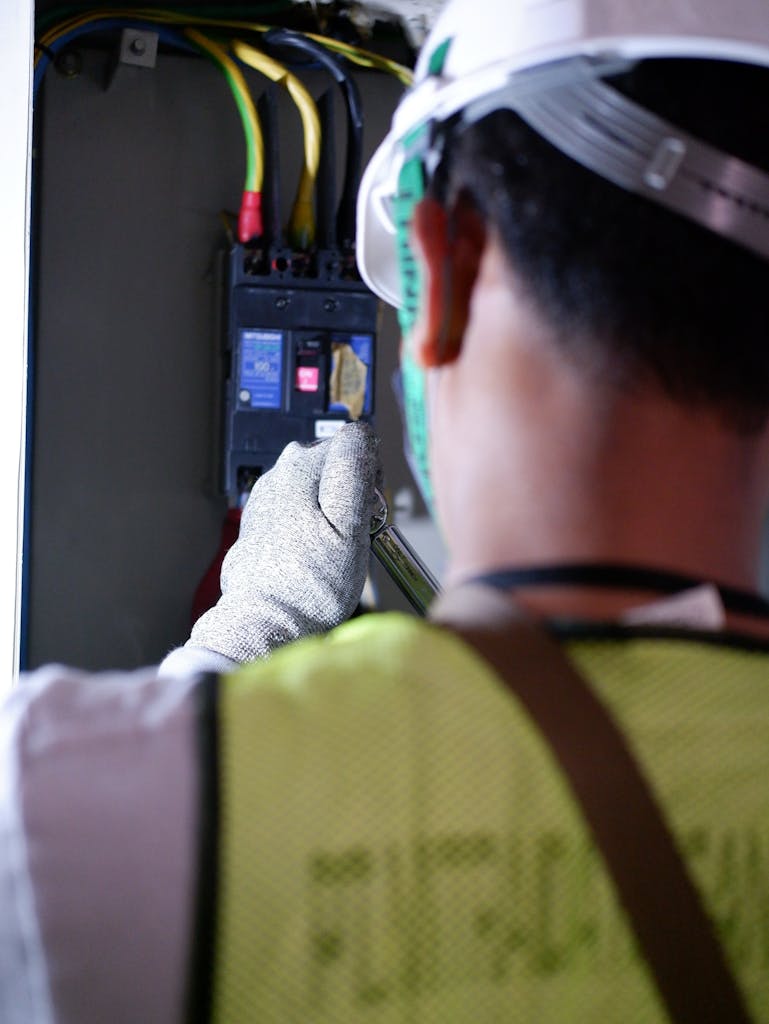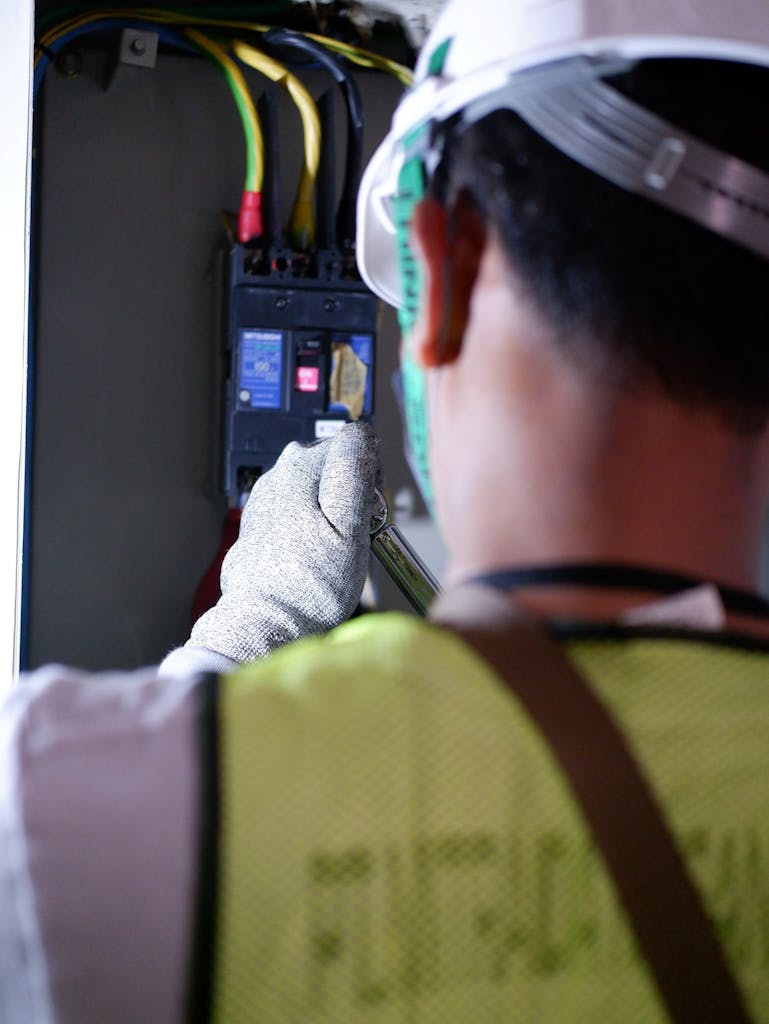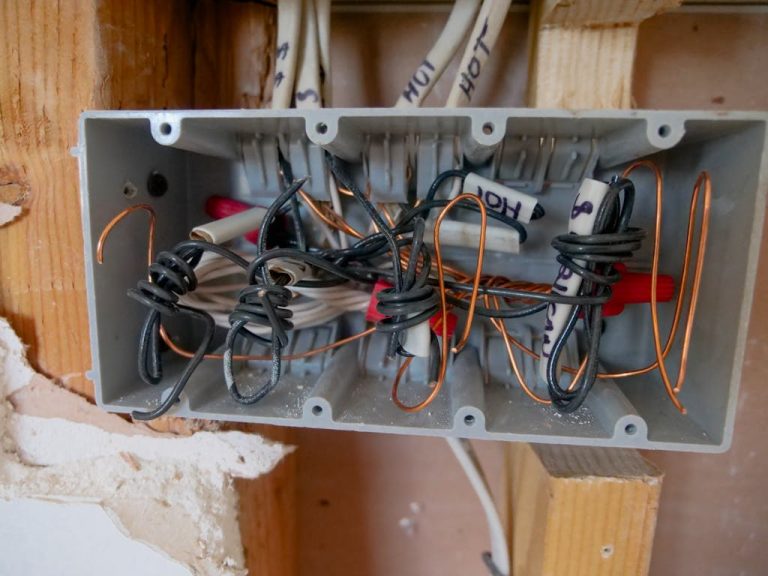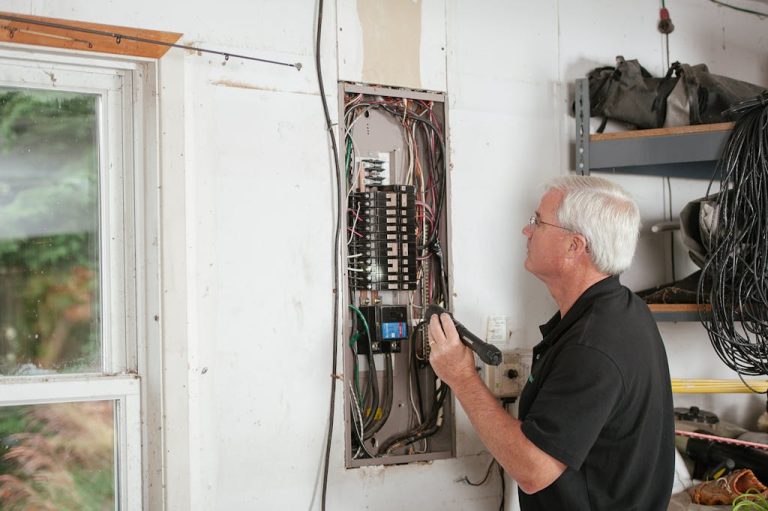Introduction
Finding a qualified, licensed electrician is essential for ensuring safety, compliance, and quality workmanship. In South Africa, electrical work carries inherent risks, and hiring an unqualified professional can result in hazards, legal issues, and costly mistakes. This guide will help you understand how to verify your electrician’s qualifications, what certifications to look for, and why it matters for your home or business.

Why Hiring a Licensed Electrician is Crucial
- Safety First
Electrical work done incorrectly can lead to fires, electrocution, and serious property damage. Licensed electricians have the knowledge and training to prevent these hazards. - Legal Compliance
The Electrical Installation Regulations (EIR) require that certain electrical work be performed by licensed professionals. Using unlicensed workers can lead to fines, failed inspections, or legal liabilities. - Insurance Protection
Insurance claims may be denied if work was carried out by an unlicensed electrician. A valid Certificate of Compliance (COC) is proof that the work meets South African standards. - Long-Term Value
A properly licensed and experienced electrician ensures work is reliable, minimizing future repairs and maintaining the safety and value of your property.
Key Qualifications to Look For
When hiring an electrician in South Africa, there are several certifications and registrations to verify:
- Electrical Contractor Registration
Electricians working as contractors must be registered with the Electrical Contractors’ Board (ECB) or provincial authority. This guarantees they operate within legal and professional standards. - Red Seal Certification
Indicates that the electrician has passed the required trade tests and is fully qualified to work independently. - SAQA Registered Qualification
Ensures the electrician’s education and training meet the standards set by the South African Qualifications Authority.
How to Verify Your Electrician’s Credentials
- Ask for Certification
Request copies of their Red Seal, SAQA registration, and any trade test certificates. Legitimate professionals will provide this information without hesitation. - Check Registration Online
Most provincial boards or the ECB maintain online registers. You can verify that your electrician is currently licensed and in good standing. - Request References
Speak to previous clients to confirm the quality, safety, and professionalism of their work. - Check for COC Issuance
A licensed electrician can issue a Certificate of Compliance (COC) after completing work. This is proof that their installations meet South African regulations.
Warning Signs of Unlicensed or Unqualified Electricians
- Offers unusually low prices that seem “too good to be true.”
- Refuses to provide proof of qualifications or registration.
- Doesn’t issue a COC for completed work.
- Avoids inspections or attempts to bypass compliance requirements.
- Lacks professional tools or uses unsafe practices.
Hiring someone who exhibits these behaviors can put your property and family at serious risk.
Why Qualifications Matter Beyond Legal Compliance
- Technical Expertise
Licensed electricians have formal training in wiring, load calculations, and fault diagnosis. This ensures your electrical system is safe and efficient. - Understanding of Codes and Standards
They are up-to-date with South African National Standards (SANS) and local regulations, which protects your home or business legally. - Professional Liability
If something goes wrong, licensed electricians carry insurance and are accountable for their work. Unlicensed workers offer no such guarantee. - Long-Term Cost Savings
Correct installations reduce the likelihood of costly repairs, energy wastage, or hazardous failures.
Tips for Homeowners and Businesses
- Always hire electricians who are licensed and registered.
- Request a Certificate of Compliance (COC) for all major installations or repairs.
- Verify credentials with official bodies like the Electrical Contractors’ Board (ECB).
- Avoid DIY electrical work or hiring unverified “handyman” services.
- Keep documentation of all work performed for insurance and resale purposes.
Conclusion
Choosing the right electrician in South Africa is not just about convenience – it’s about safety, compliance, and peace of mind. By verifying qualifications, checking registrations, and requesting a Certificate of Compliance, homeowners and businesses can ensure that all electrical work is performed professionally and legally.
At Ronald George Electrical, we are fully licensed, registered, and committed to delivering safe, reliable, and compliant electrical services throughout Cape Town. From routine repairs to full-scale installations, our team ensures every project meets South African safety standards, giving you confidence in your home or business’s electrical system.




